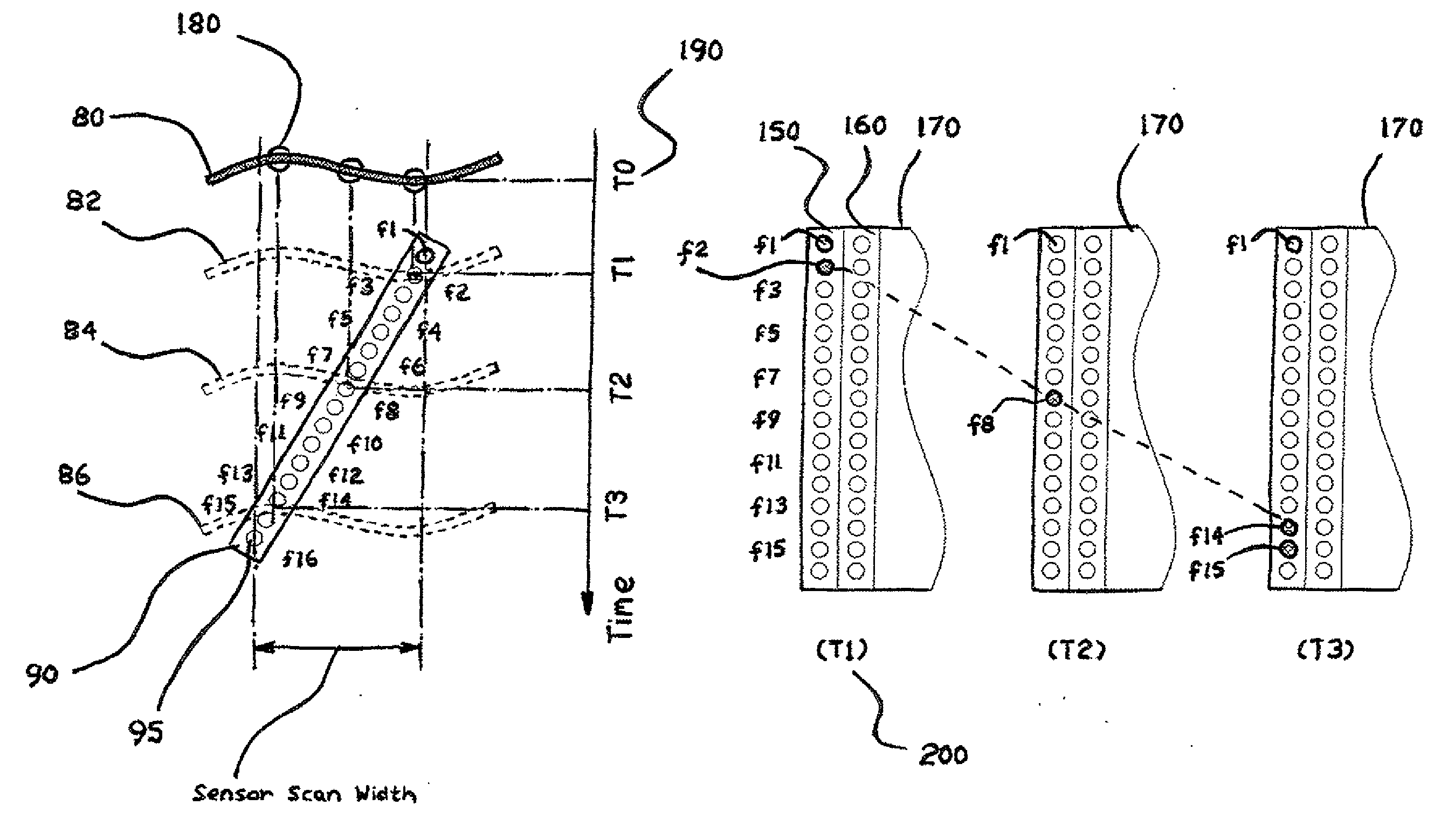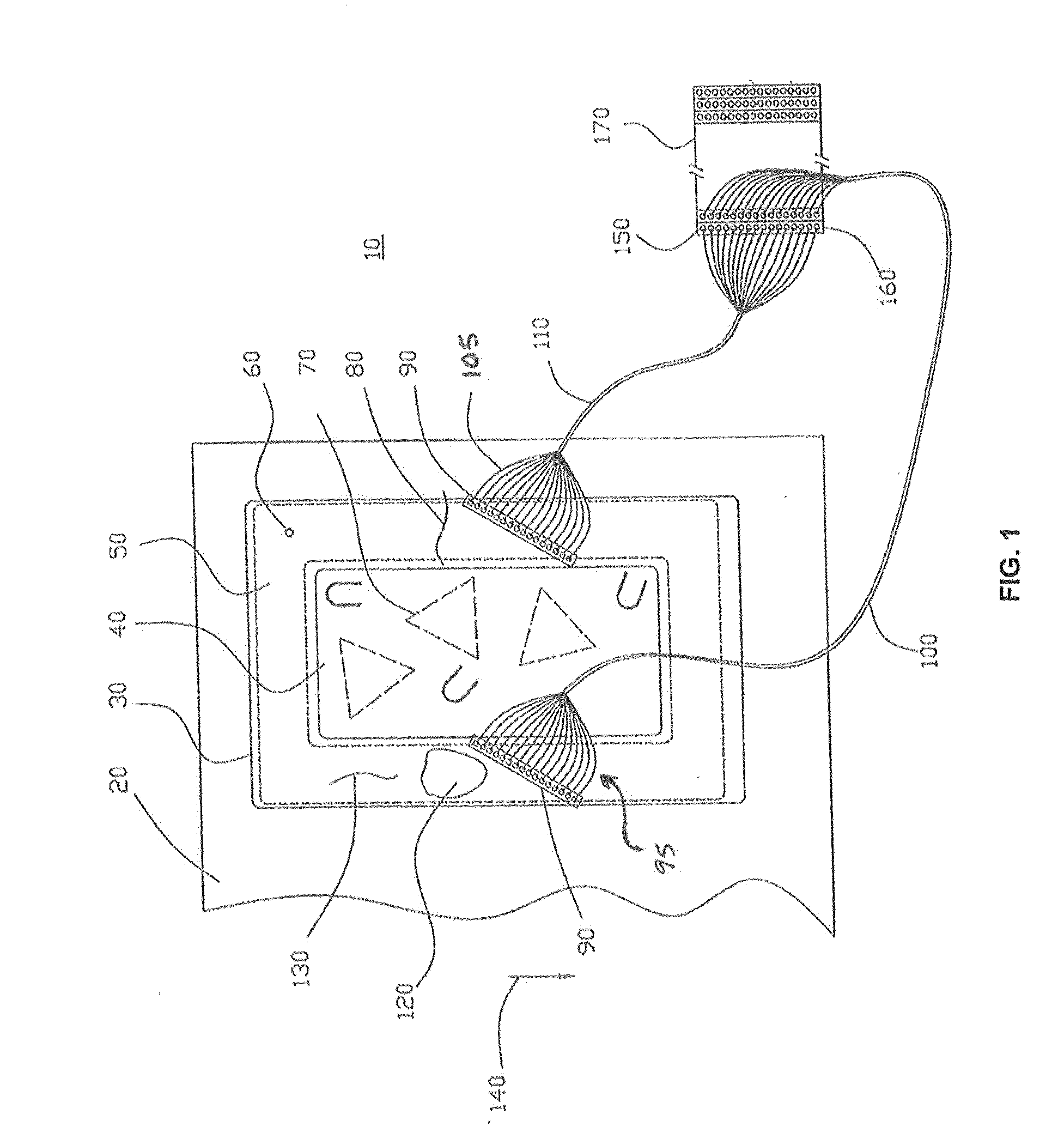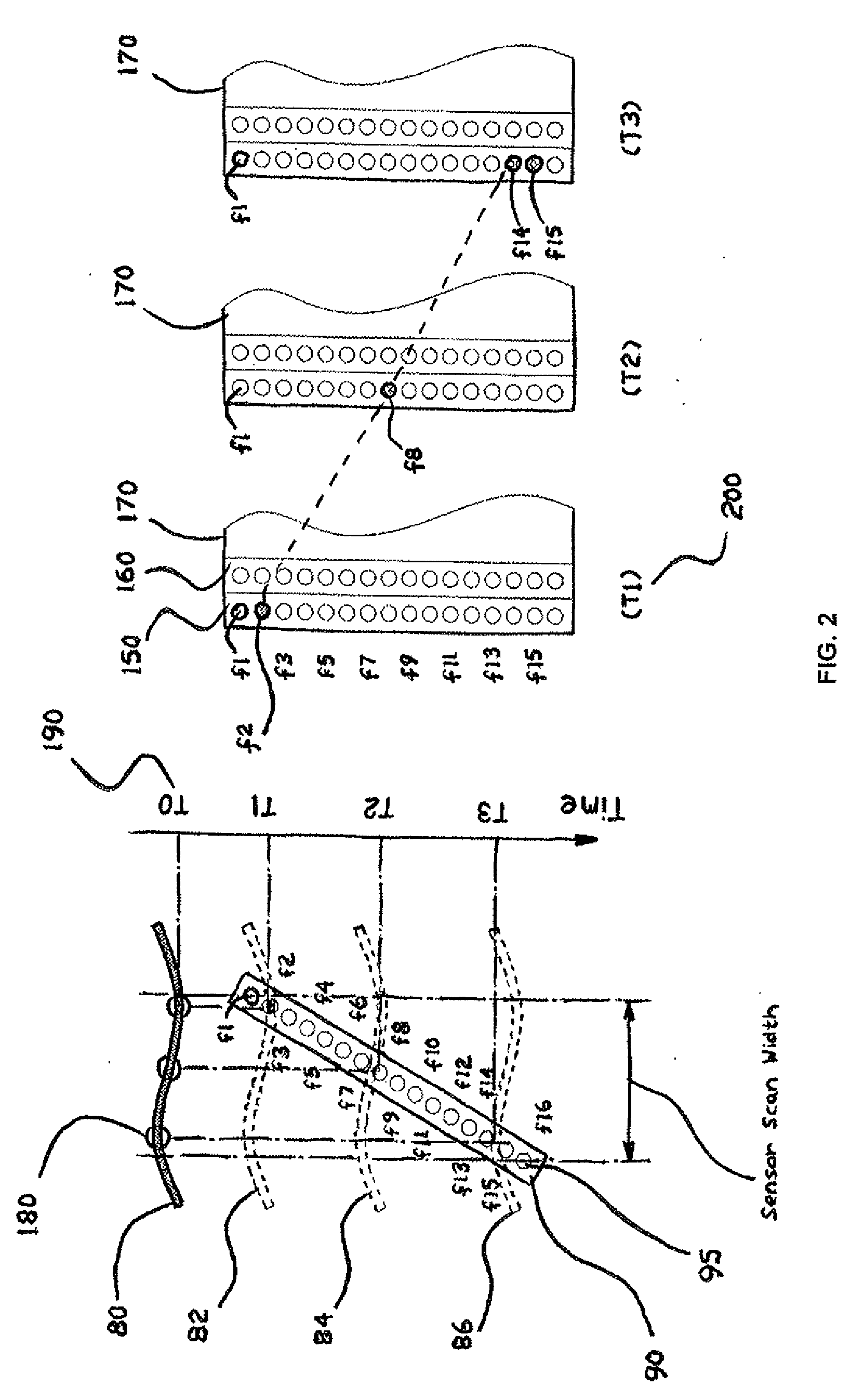Method and apparatus for detecting defects and embedded objects in sealed sterilized packaging
- Summary
- Abstract
- Description
- Claims
- Application Information
AI Technical Summary
Benefits of technology
Problems solved by technology
Method used
Image
Examples
Embodiment Construction
[0017]The particular values and configurations discussed in these non-limiting examples can be varied and are cited merely to illustrate at least one embodiment and are not intended to limit the scope thereof.
[0018]FIG. 1 is a schematic illustration of the multi-head optical scanner 10 employing fiber optic sensor arrangements 90 (e.g., an array) for transmitting optical energy. Each sensor 95, 105 is comprised of bundle of optical fibers 100, 110 arranged in a linear face 90 oriented towards a scanning area (or areas) of a package 20. As an example, the package 20 illustrated in FIG. 1 includes a sterile area including a sealed pocket 40 defined by a border 30 and includes a sealing area 50. Sterile objects (e.g., surgical tools) 70 are contained within the pocket 40. Input from the sensors 90 can be combined together into 2×D area face 170. In the illustrated embodiment, the multi-head optical scanner is shown with only two stationary sensors 95, 105 that could perform a scan of t...
PUM
 Login to View More
Login to View More Abstract
Description
Claims
Application Information
 Login to View More
Login to View More - R&D
- Intellectual Property
- Life Sciences
- Materials
- Tech Scout
- Unparalleled Data Quality
- Higher Quality Content
- 60% Fewer Hallucinations
Browse by: Latest US Patents, China's latest patents, Technical Efficacy Thesaurus, Application Domain, Technology Topic, Popular Technical Reports.
© 2025 PatSnap. All rights reserved.Legal|Privacy policy|Modern Slavery Act Transparency Statement|Sitemap|About US| Contact US: help@patsnap.com



